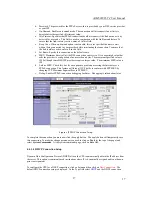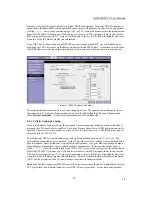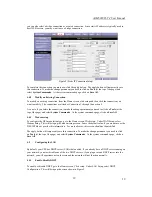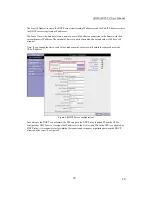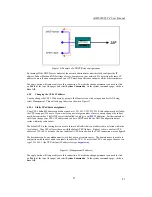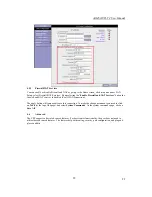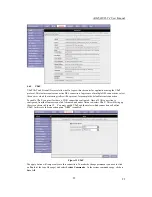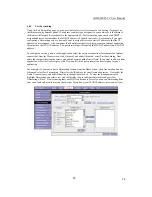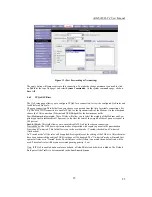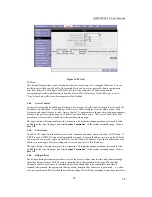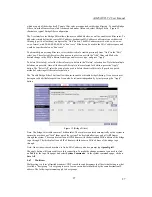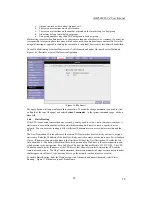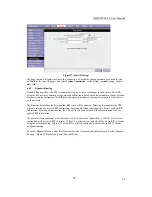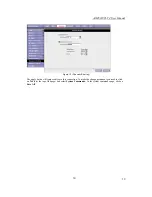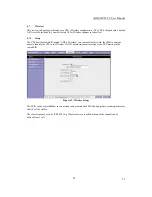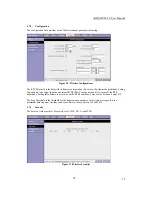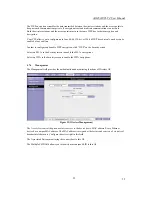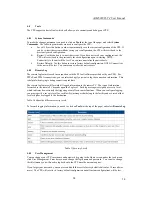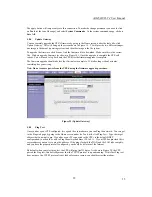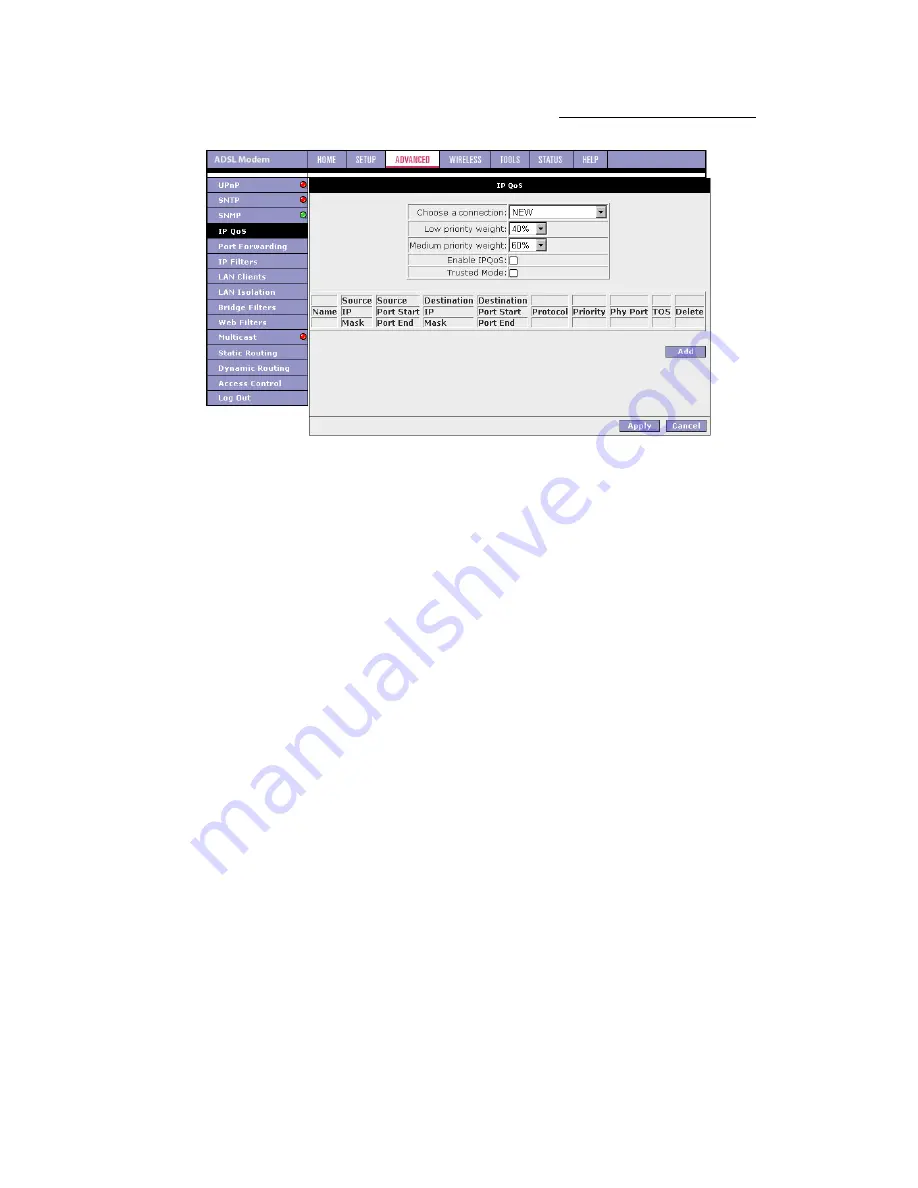
AAM6020VI-T4 User Manual
26
26
Figure 14 (IP QoS)
IP Filters
This firewall feature allows you to block network access based on a user's computer IP address. You can
use this page to block specific traffic (for example block web access) or any traffic from a computer on
your local network. To configure an IP Filter rule select the computers' IP address and add the
corresponding firewall traffic definition from the Firewall Policy Database. If the traffic type is set to
"Any" all network traffic from that computer will be blocked.
4.6.4 Access
Control
Access control can also be called port blocking. Specific types of traffic that is destined to a selected LAN
IP address can be blocked. To enable any of the Access Control features, from the Home screen, click
Advanced and under Advanced, select Access Control. A page similar to the port-forwarding page appears.
Similar to the port-forwarding page, an IP address can be added to a rule. All Access Control rules have
precedence over rules that were added via the port-forwarding page.
The apply button will temporarily save this connection. To make the change permanent you need to click
on
Tools
(at the top of the page) and select
System Commands
. At the system commands page, click on
Save All
.
4.6.5 LAN
clients
To add a LAN client, from the Home screen, click Advanced and under Advanced, select LAN Clients. If
DHCP is used, all DHCP clients are automatically assigned. If a fixed IP address server is on the LAN and
you want this server to be visible via the WAN, you must add its IP address. Once the IP address has been
added to you can apply Port Forwarding and Access Control rules to this IP address.
The apply button will temporarily save this connection. To make the change permanent you need to click
on
Tools
(at the top of the page) and select
System Commands
. At the system commands page, click on
Save All
.
4.6.6 Bridge
Filters
The bridge filtering mechanism provides a way for the users to define rules to allow/deny frames through
the bridge based on source MAC address, destination MAC address and/or frame type. When bridge
filtering is enabled, each frame is examined against the defined filter rules sequentially, and when a
matched is determined, the appropriate filtering action (determined by the access type selected ... i.e. allow
or deny) is performed. The user should note that the bridge filter will only examined frames from interfaces






